Education systems across the globe leave a lot to desire. For instance, the global average student-teacher ratio was 24.26:1 in 2018 based on data from 86 countries. Rwanda has one teacher per 59 students, and some Indian states have 54 students per teacher.
It’s hard to build effective channels of communication with your students in such conditions let alone stimulate the cognitive abilities of each student.
It doesn’t have to be that way. Not with so many awesome AI tools for students in the equation.
This is the “present” of education.
AI-Powered Tools: Revolutionizing Student Learning
Teachers should encourage innovation, help their students explore new ideas, and create inspiring learning experiences for each individual. However, they end up stuck in the rut of administrative duties, lesson planning, paper setting, and grading. Students often do not receive the assistance and personalized care they need.
Here are 10 AI tools to help both students and teachers.
1. StepWise by Querium
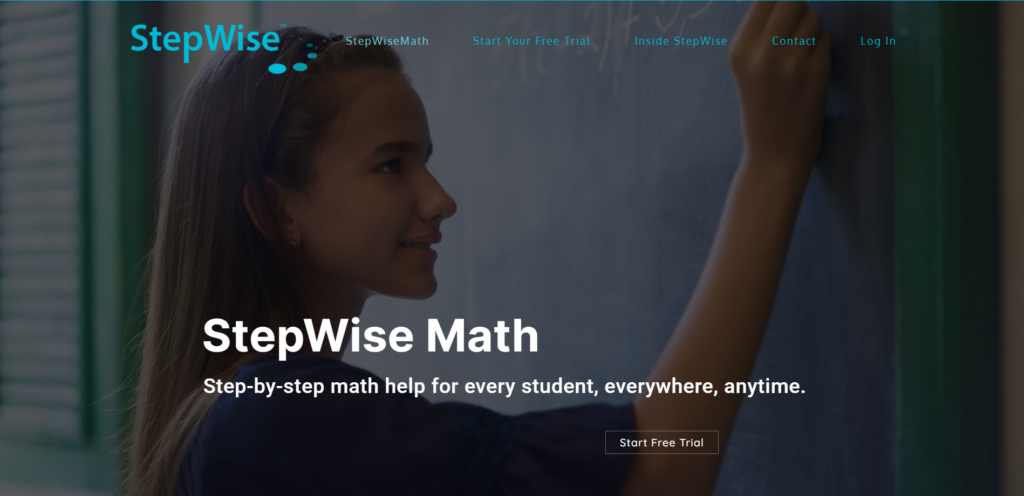
Each step matters when a student tries to solve a math problem. A teacher may have to read through half a dozen lines to discover why a student got a wrong answer. Now, imagine doing that for 5 wrong answers per student in a class of 25. That’s some serious commitment of time and energy. This is where StepWise comes in.
StepWise’s patented technology is designed to analyze each step of solving a math problem and provide immediate feedback. The best part is, students can ask for a hint when they get stuck on a certain step. Moreover, the tool doesn’t penalize a student who can jump a couple of steps by making the calculations in their head.
Key benefits
- Doesn’t let the student waste time on a wrong path while solving math problems
- Saves hours of time for teachers who no longer need to go through scratchwork to find why a student got a wrong answer
- An easy and rewarding way of learning mathematics for students of all ages.
StepWise comes with three plans. The cheapest one is for StepWise for students. It costs $9.99 a month and helps students learn algebra and pre-calculus.
The family plan which sends parents reports on their child’s progress, costs $27 a month.
The plan for schools is powered by an AI engine trained with data from master teachers. You’d have to contact the company for the pricing on this one.
There is a team of AI researchers, teachers, and lecturers behind this AI tool for students. They have also used math graduate students to test the application. Over all it looks pretty neat in the demo.
2. Fetchy
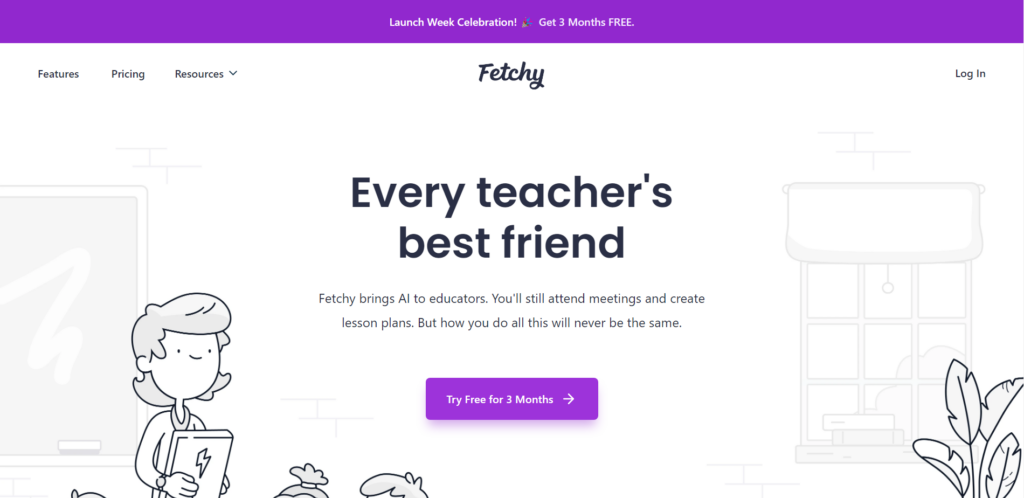
Fetchy takes generative AI and puts it to work for teachers. It is truly awesome how the makers of this tool have taken every challenge, every task a teacher may come across, and made a feature for it.
Key features
- Create assessments based on grade, subject matter, and other parameters.
- Generate simplified explanations for concepts
- Write articles, essays, report cards, feedback, and everything in between.
- Generate lesson plans
- Get advice on handling complicated student situations
If you’re a tech-savvy teacher, you might be thinking that everything that Fetchy does can be accomplished by using ChatGPT. But the truth is, a tool like Fetchy inspires you to use AI in a productive manner. It guides your usage of generative AI in a way that is truly efficient and beneficial to your cause.
3. IvyQuantum
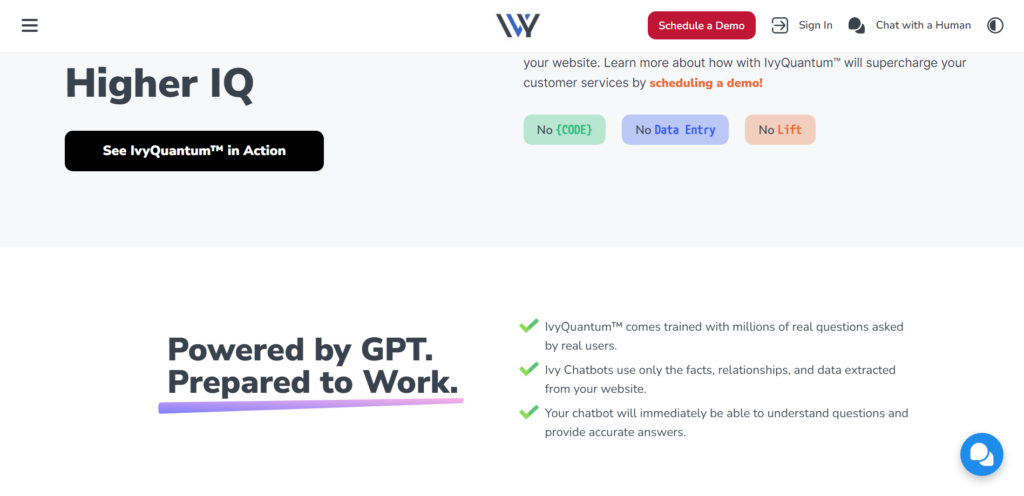
IvyQuantum or IQ is designed to be a fully-fledged customer relationship management bot. But it carries solid applicability in the education sector. Colleges, universities, and even large schools with multiple branches can draw the benefits of this ai-powered tool.
Key features
- AI writing to create email responses and cadences.
- Imports data from an institution’s website and external documents (banners, for example) daily to train the GPT
- Ivy can answer phone calls thanks to integrated voice response technology
- It can easily learn from spreadsheets, word docs, and pdfs.
Universities can leverage Ivy to communicate with students, as well as potential recruits. It makes it much easier for students to get thorough and accurate answers to their queries. It frees up human callers to answer complex questions. Overall, it’s a platform that helps students as well as institutes.
4. Smart Sparrow
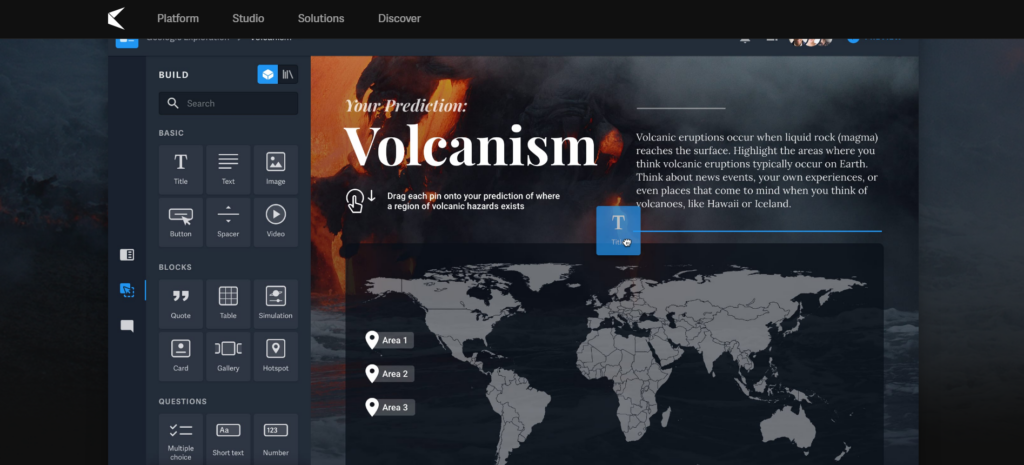
Smart Sparrow is an end-to-end digital learning platform that helps teachers and educators create personalized, learner-centric courses that are visually engaging, interactive, and analytical.
Key features
- Real-time analysis of student activities
- Scaffold and combine feedback for deeper instruction
- High-fidelity media import and text editing
- The ability to shape courseware to serve the specific needs of a learner
Smart Sparrow is a multifaceted platform that can be used by teachers trying to design personalized pedagogies as well as publishers trying to create high-quality course material.
In fact, it can help you transform a boring textbook into an interactive learning experience. The ability to analyze data in real time allows teachers to intervene in a timely manner when a learner’s performance drops
5. Cognii
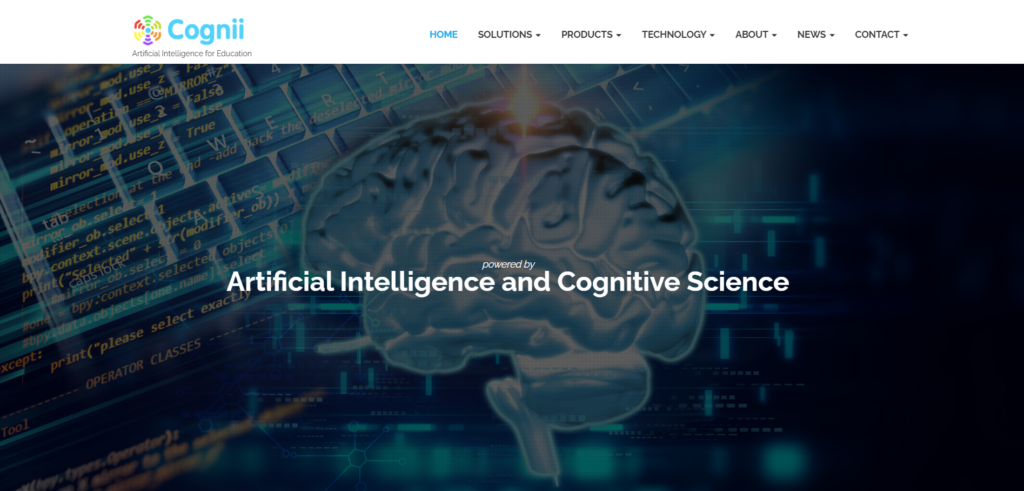
Cognii is an education technology tool powered by artificial intelligence for students, instructors, and organizations. The developers have leveraged conversational AI combined with conversational pedagogy to form a highly intuitive conversational EdTech platform.
Unlike general-purpose learning assistants, Cognii uses open-response assessment to make the students write answers of their own.
The platform asks questions and processes long user inputs with all its semantic variations leveraging deep natural language processing. It then provides corrective feedback or asks follow-up questions.
Best use cases
- Students can use the platform at any time to practice concepts, take assessment tests, and gain in-depth knowledge.
- Instructors can use Cognii to reduce the burden of grading, create assessments, and personalize instructions.
- Organizations can use the tool to implement high-quality training programs, improve student engagement, and reduce costs.
6. Knowji
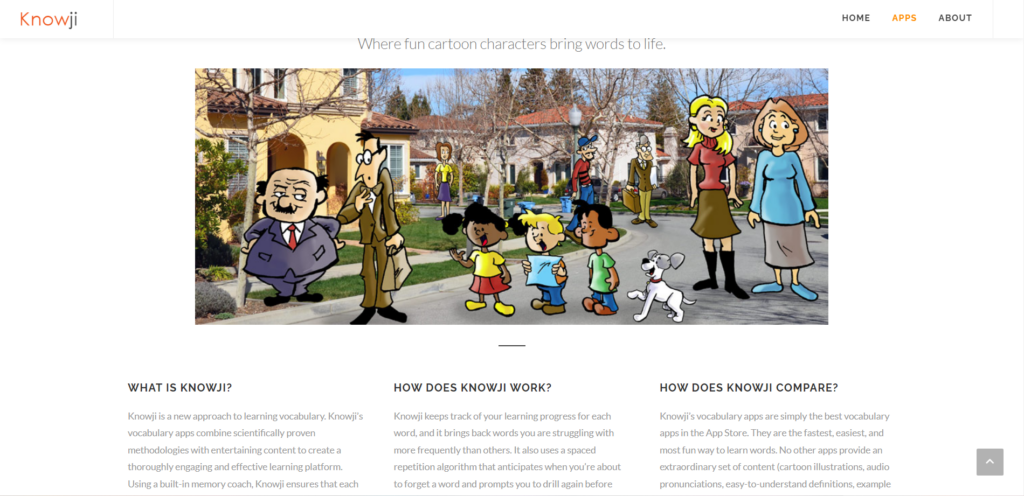
Knowji creates apps for vocabulary learning. While there is no shortage of vocabulary training apps on the App stores, Knowji brings some special ingredients to the table.
Knowji uses a spaced repetition algorithm to anticipate when you’ll forget a word and brings it back right when you’re about to forget it. This enables long-term retention of the words. The Knowji apps are designed to track your progress, identify the words you are struggling with, and bring them back more often than others.
Key features
- Cartoon illustrations, audio pronunciations, and simple definitions for each word
- Spaced repetition algorithm to help you retain what you learn
- Personalized learning experience based on your progress using machine learning algorithms
7. Eklavvya
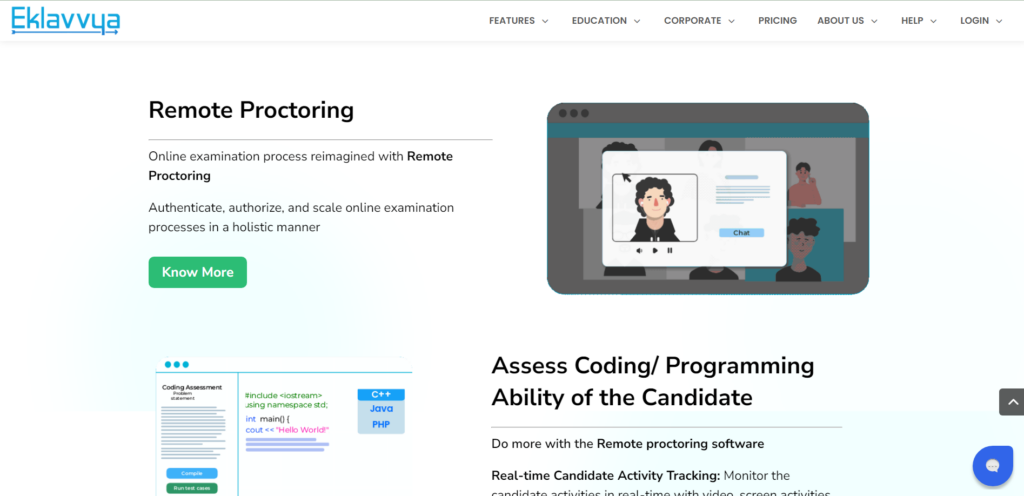
Eklavvya is a web-based AI-driven proctoring tool that monitors student behavior during online assessments. But it does more than that.
The developers have carefully analyzed the problems faced by online institutes trying to conduct remote assessments. And they have come up with a one-stop platform for authenticating students, monitoring their behavior, and preventing them from using background applications.
Key features
- Behavior analysis based on facial recognition
- Image proctoring (especially suited for environments with weak internet connectivity)
- White-list of applications that can be switched to
- The ability to keep the assessment page on top
Overall, Eklavvya is a nightmare for candidates or students trying to cheat during a remote assessment.
8. Plaito
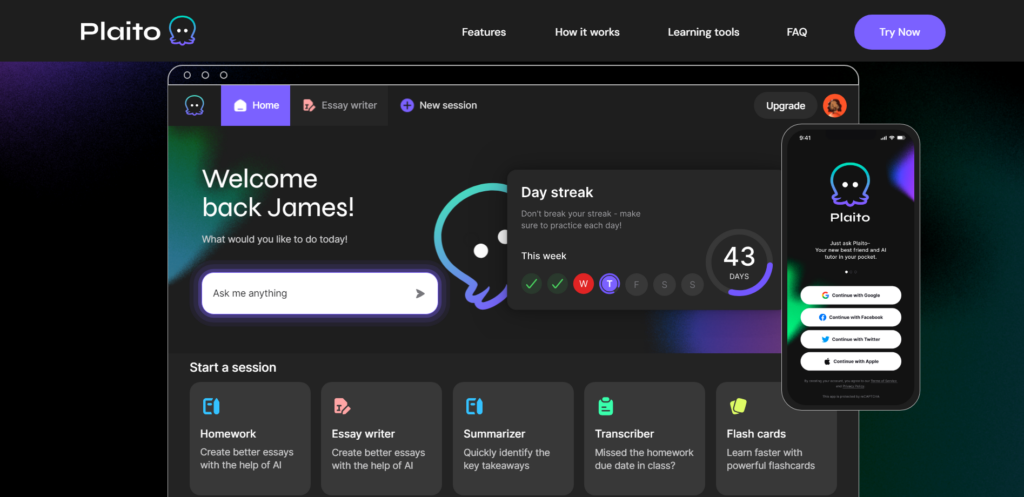
Plaito takes one-on-one digital tutoring to a whole new level by leveraging AI and machine learning. It acts like a coach and guides the students in the right direction with prompts and suggestions as they write an essay, solve a geometry problem, or answer a history question.
It combines instruction, assessment, and feedback in real-time to gamify learning for students. It offers you help on a whole range of subjects and comes with learning tools like flashcards, transcribers, and summarizers.
Key features
- Gamified learning with progress bars, reward points, and challenges
- Available in 4 languages
- Personalized training
9. Carnegie Learning
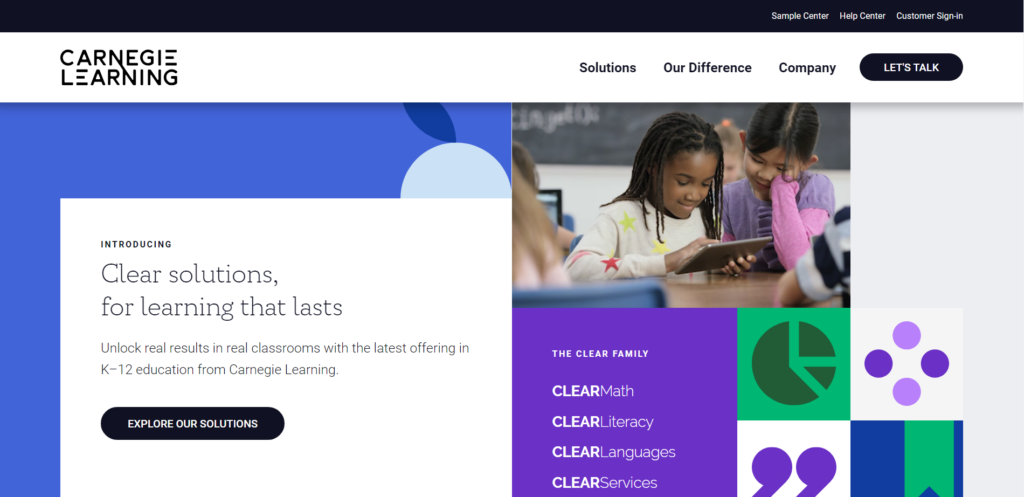
Carnegie Learning has been around for over two and a half decades creating deep roots in the EdTech industry. Now, they have embraced AI-based innovations in education technology to create tools for students to learn math, languages, and literature for K-12.
Key features
- Step-by-step analysis of students’ progress through a problem and immediate feedback
- Strong descriptive and predictive analysis of students’ performance
- A large community of users
The AI tool for students by Carnegie Learning called Mathia levels the playing field for students who are too shy to raise a hand during a lecture if they have doubts. It collects data as the student performs certain tasks, just as a human teacher would do, and personalizes feedback and further learning plans based on that data.
The platform allows instructors and administrators to visualize the state a class is in which further enables them to divide students into groups based on their strengths and weaknesses and optimize learning strategies for each group for the best outcome.
10. Zotero
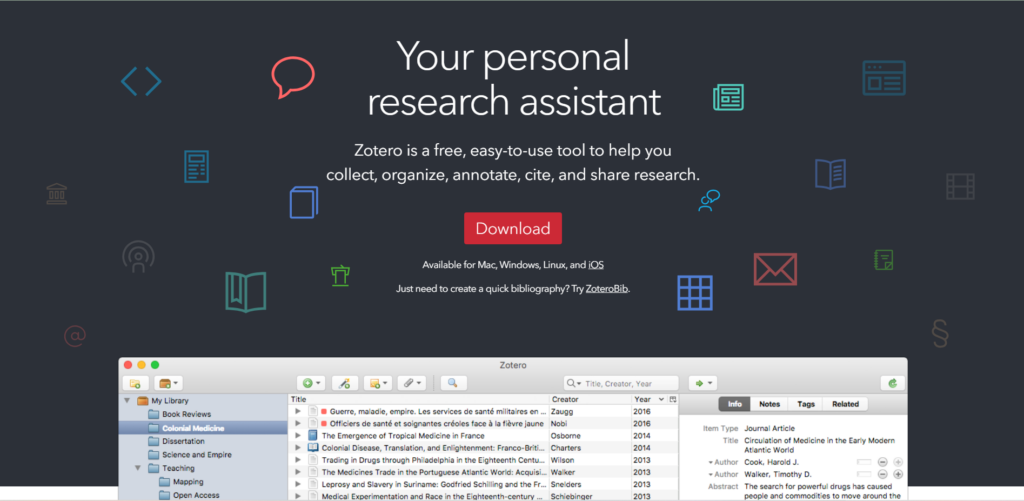
Zotero is a lifesaver in a research scenario. This free, open-source AI tool for students as well as researchers does a lot of intelligent things.
- It senses research as you browse the web and helps you find what you’re looking for
- It helps you organize your research material
- You can use it to collaborate on a research paper
The most important feature offered by Zotero is automated citation and bibliography.
As you write your research paper, Zotero identifies the sources of the information used in it and cites them for you in a neat bibliography. It supports 10,000 citation styles, so you cannot go wrong with this one. Just imagine the amount of time you can save using Zotero.
AI tools that didn’t make the list but are brilliant nonetheless
Wolfram Alpha
You can use it to get direct answers to factual questions across a host of subjects instead of searching on Google.
Mendeley
An automated citation tool plus a social network for researchers where they can find collaborators and read papers.
Nuance
Nuance is powered by speech recognition. It helps you write up to 160 words per minute without typing a single word.
Socratic
Socratic is a digital tutor-like app that answers your questions and helps you understand concepts.
Research Rabbit
Get paper recommendations based on what you love to read just like song recommendations on Spotify. Visualize the network of papers and co-authorships. Identify jumping-off points to delve deeper into a subject.
The best AI tools for students in different categories
Some AI tools help students learn faster, and others help teachers work faster. Some are better for learning languages, and some are more suited for STEM. This section will help you find the top AI tools for your specific needs.
AI writing assistants
There are a bunch of AI tools powered by GPT that students can use to write essays, improve their homework, and get inspired. These tools should be used under parental guidance to ensure that generative AI doesn’t paralyze their child’s cognitive abilities but augment them.
Everyone already knows about ChatGPT. We have already mentioned Nuance which students can use to transcribe their own dictation. Tools like Google Bard, Quillbot, and Jasper can help students build up passages, rephrase, and paraphrase by providing precise instructions.
AI for learning concepts
Plaito, Mathio by Carnegie Learning, Socratic, Cognii, and StepWise are all AI tools for students designed to facilitate adaptive learning. These tools can assist students in learning, practicing, and mastering concepts across a range of subjects.
We also discussed Knowji, a tool designed to help students develop their vocabulary.
AI-based lesson planning and grading tools
Smart Sparrow, Fetchy, Carnegie Learning, and StepWise are all great AI-driven platforms for instructors to create personalized lesson plans for students. They can also use these tools to generate feedback for students, conduct deep analyses of their performance, and make step-by-step assessments.
Administrative AI tools for educational institutes
Institutes can use IvyQuantum to better communicate with students. They can use tools like Eklavvya to manage remote assessments. A tool like Carnegie Learning can come in handy when judging the effectiveness of a certain instructive strategy.
FAQs about AI for Students
1. Can AI replace teachers in the classroom?
AI tools for students are meant to augment the teaching and learning processes. They can help teachers make more effective and efficient use of their time. AI can not and should not replace human teachers. AI has limitations as well as dangers, hence it has to be used by students in a controlled and supervised manner.
2. Are AI applications for education expensive?
There are a lot of inexpensive as well as free AI tools for students to use. However, tools designed to cater to the needs of an educational institute can be expensive.
3. Can AI adapt to different learning styles?
Yes. AI tools for education can learn from inputs given by students and teachers to model learning experiences that cater to different learning styles.
4. Can AI be used to learn skills outside academic subjects
Platforms like ChatGPT are trained on enormous sets of data covering every aspect of human knowledge. Individuals can use their imagination, discipline, and curiosity to learn virtually anything.
5. Are their AI-powered tools for teaching specific subjects?
Yes. There are tools that specialize in teaching math and science, whereas others that are intended to teach languages and social sciences. Some applications can help you teach multiple subjects from the same platform.


